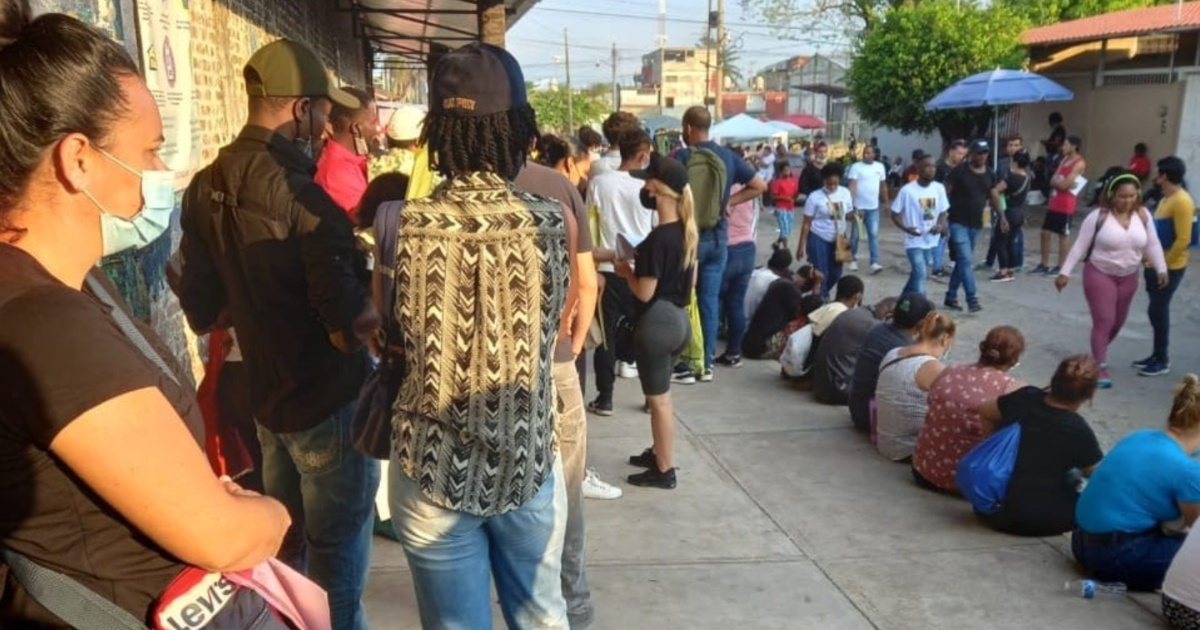A Cuban migrant has shed light on the challenging circumstances of securing employment in the Mexican border city of Tapachula, where she arrived seven months ago with hopes of continuing her journey to the United States.
An article from the local news outlet Diario del Sur revealed that although Cuban national Bárbara Güero reached the city months ago, she has yet to regularize her immigration status or secure formal employment. A mishap with her email prevented her from completing the necessary paperwork on time, forcing her to start the process again.
"I've been treated wonderfully in Mexico, but finding a job has been tough. I think it might be due to my age—I’ve looked for any kind of work without success," Güero shared with Mexican media. Without a formal job, she has resorted to cleaning houses to earn money for food. "I get scolded, but I'd rather do this than lose my freedom if I return to Cuba," she explained.
The Broader Migrant Struggle
Güero's experience is echoed by many other migrants who find themselves in limbo after former President Donald Trump eliminated the CBP One and humanitarian parole programs. Numerous Latin Americans who hoped to secure transit permits in Mexico to reach the U.S. have had to settle and start new lives in the country.
The story also highlighted the case of Herlinda Montoya, a Honduran woman who has been in Tapachula for six months without documentation. "The hardest part has been finding work and obtaining the necessary documents. We hope someone can help us improve our family's situation," she commented. Without formal employment, her husband began working in construction, which has allowed them to get by.
A City in Transition
Despite a significant drop in migrant arrivals to Tapachula, thousands remain in the city in irregular situations. According to Mexican authorities, during the first four months of 2024, Tapachula received more than 13,000 migrants per month on average, while in the same period of 2025, the number fell below 2,000 monthly.
The undocumented, primarily of Cuban origin, face prolonged waits for asylum decisions. Many have been waiting for over six months without a clear resolution and may continue in this uncertainty for more than a year. As they await legal permission to reside in Mexico, they engage in informal work to survive.
Without contracts, migrants often work up to 12 hours a day, earning between 1,500 (78 USD) and 2,000 Mexican pesos biweekly or even monthly. As reported by Diario del Sur, most available jobs are in customer service, cleaning, or construction.
Understanding the Migrant Crisis in Tapachula
What are the main challenges faced by migrants in Tapachula?
Migrants in Tapachula face significant challenges securing employment and regularizing their immigration status. Many are stuck in limbo without the necessary documentation to find formal work, forcing them to take irregular jobs to survive.
Why did the number of migrants arriving in Tapachula drop?
The drop in migrant arrivals to Tapachula is partly due to changes in U.S. immigration policies, such as the elimination of the CBP One and humanitarian parole programs, which have left many migrants without a clear path to the United States.
How do migrants in Tapachula sustain themselves?
Migrants in Tapachula often resort to informal work, such as cleaning, construction, or working in local businesses, to earn a living while they await decisions on their asylum applications.
